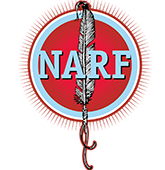Records Show Petersen’s Firm Planned Native Adoption, Raising Legal Questions
Emails to the adoptive family from the director of Bright Star Adoptions, an adoption firm for which Petersen served as general counsel, suggest that concerns came up about the firm’s compliance with the Indian Child Welfare Act following Petersen’s arrest. Read the full article at the Phoenix New Times website. Read related news: “Indigenous Lawmakers … Read more
